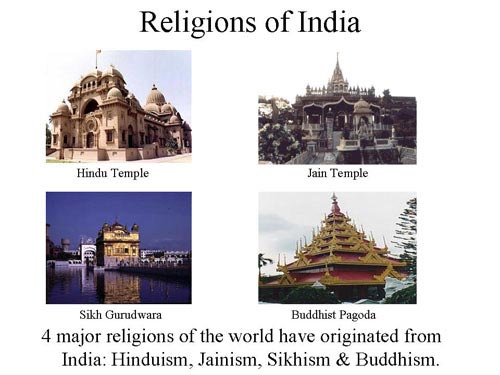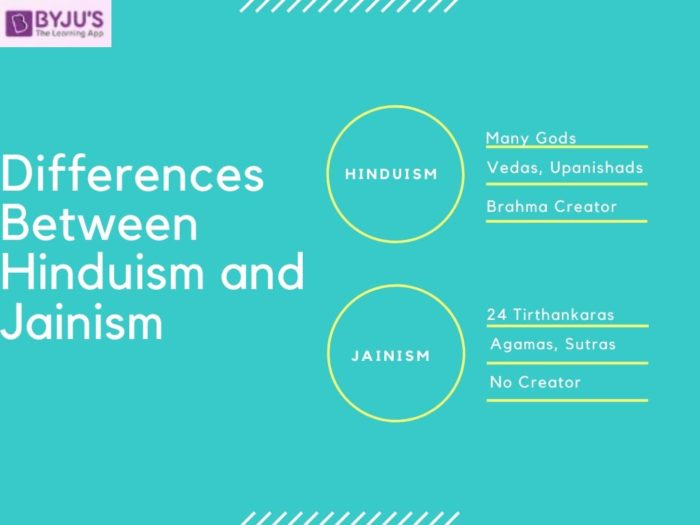Jain Vs Hindu: Unveiling Key Differences
Are you curious about the fascinating differences and similarities between Jainism and Hinduism? You’re not alone.
These two ancient religions often capture the intrigue of those looking to deepen their understanding of spiritual philosophies. You might wonder how they coexist in harmony, yet maintain distinct beliefs and practices. This exploration not only satisfies your curiosity but also enriches your knowledge about the diverse tapestry of Indian spirituality.
Imagine unraveling the unique threads that bind these traditions, offering you a fresh perspective on age-old wisdom. As you dive deeper into this comparison, you’ll discover insights that might just change how you perceive faith and culture. Prepare to engage your mind and awaken your curiosity as you explore the compelling world of Jain vs Hindu.

Origins And Historical Context
The roots of both Jainism and Hinduism trace back to ancient India. Jainism began around the 6th century BCE. It was founded by Mahavira, who was a spiritual teacher. Hinduism is even older. It evolved over thousands of years. Both religions have deep roots in Indian culture.
Jainism focuses on non-violence and truth. Hindus believe in a variety of gods. Their beliefs include karma and reincarnation. While Jainism is more strict, Hinduism is more diverse. Both have unique practices and traditions.

Core Philosophical Beliefs
Jainism does not believe in a creator God. They see the universe as eternal. Everything follows natural laws. Jains believe in many gods who are not creators. They are liberated souls. They have reached perfect knowledge. In contrast, Hinduism believes in one Supreme God. This God creates, maintains, and destroys the universe. Hindus also worship many gods and goddesses. Each has a specific role.
The concept of the soul is important in both religions. In Jainism, every living being has a soul. Souls are eternal and equal. They can reach liberation by shedding karma. Karma is a key belief in both religions. For Jains, karma is a physical substance. It sticks to the soul. Good deeds reduce karma. Bad deeds increase it. Hindus see karma as actions and their consequences. Good actions lead to good karma. Bad actions lead to bad karma.
Sacred Texts And Scriptures
Hinduism has many sacred texts. The most famous are the Vedas. There are four main Vedas. They are Rigveda, Samaveda, Yajurveda, and Atharvaveda. These texts are very old. They are written in Sanskrit. Hindus also have the Upanishads and the Bhagavad Gita.
Jainism has different sacred texts. They are called the Agamas. These texts are teachings of Mahavira, the Jain leader. Jains also study Sutras and Commentaries. These help them understand their religion better.
Both religions value their scriptures. They guide the followers’ lives. Sacred texts teach people how to live well. They also show the path to spiritual growth.
Practices And Rituals
Jains focus on inner peace. They meditate and reflect often. Hindus use prayers and chants. Temples are important in their worship. Both groups show respect to their gods. Yet, they do it in different ways. Jains have fewer rituals. They believe in simple living. Hindus love colorful ceremonies. These include dance and music. Both aim for spiritual growth.
Jain festivals are about self-control. They fast and meditate deeply. Paryushana is a key festival. Hindus celebrate with joy and color. Diwali is the most famous. They light lamps and share sweets. Jains also celebrate Diwali. But, they focus on Lord Mahavira’s teachings. Hindu festivals are lively and fun. They bring families together. Each festival has its own story and meaning.
Dietary Traditions
Jain and Hindu people follow vegetarian diets. They believe in Ahimsa, meaning no harm to living beings. Jains avoid root vegetables. They think pulling roots kills the plant. Hindus often eat dairy products. Cows are sacred to them. Both groups respect animals. They avoid meat and fish.
Fasting is common in both religions. Jains fast during Paryushana and other holy days. They may not eat or drink for days. Hindus fast on special days. They eat simple food during fasts. It is a spiritual practice for both. Fasting helps them feel closer to God. It teaches self-control and respect for life.
Social And Cultural Impact
Jain and Hindu beliefs shape societies. Their customs guide people’s lives. Values like non-violence, truth, and respect are central. Both cultures cherish family ties and community. Festivals bring joy and unity. They teach sharing and caring. Art and music from these cultures are rich and vibrant. Temples and rituals connect communities. Education and philosophy are important. Schools teach respect and kindness. People learn to live peacefully. Cultural diversity enriches society. These values inspire others. They promote harmony and understanding.
Jain and Hindu people interact often. They share ideas and beliefs. Friendship grows between them. They respect each other’s traditions. They celebrate festivals together. Learning from each other is key. Dialogue fosters peace and harmony. Sharing food and stories is common. Both groups value kindness and compassion. Helping others is important. Differences are accepted. Unity is the goal. These interactions build strong bonds. They strengthen communities. Together, they make society better.
Modern-day Relevance
Both Jainism and Hinduism teach peace and non-violence. These values remain important today. People follow these teachings to live in harmony. Many practice meditation and yoga from these faiths. They find peace and calmness.
Jain and Hindu festivals bring people together. Families and friends celebrate with joy. They share food and stories. These gatherings keep traditions alive. Both communities value family bonds. Respect for elders is important.
Jains promote non-violence towards nature. They advocate for protecting animals and plants. This respect for nature helps the environment. Hindus also respect nature. They honor rivers and mountains as sacred. These beliefs foster care for the earth.

Conclusion
Jain and Hindu beliefs share rich cultural roots. Yet, they differ significantly. Jainism emphasizes non-violence and detachment. Hinduism focuses on diverse deities and rituals. Both offer unique paths to spirituality. Their philosophies inspire millions worldwide. Respect and understanding are crucial.
Exploring these differences enriches our knowledge. It fosters global harmony and acceptance. Each tradition holds wisdom and value. Learning about them broadens our perspective. It strengthens cultural appreciation. Understanding these nuances promotes peace. It encourages dialogue and mutual respect. Discover their teachings.
Embrace diversity. Celebrate shared humanity.




